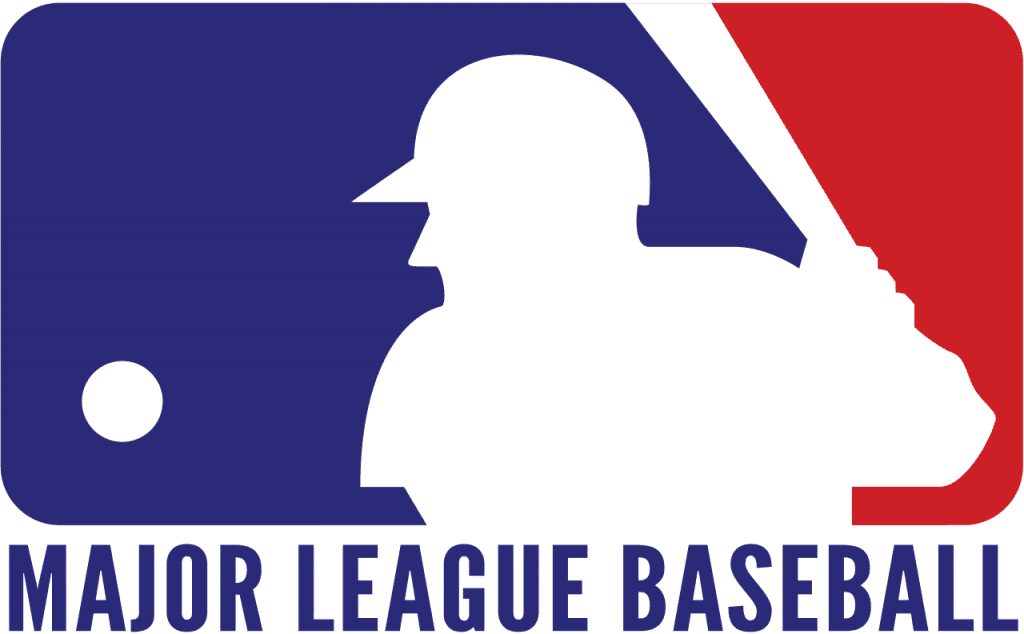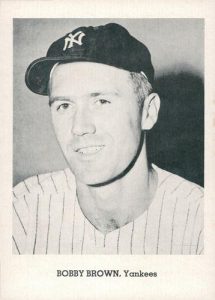

Commissioner of Baseball Robert D. Manfred, Jr. issued the following statement today regarding the passing of former New York Yankees infielder (1946-52, 1954) and American League President (1984-1994) Dr. Bobby Brown at the age of 96:
“Dr. Bobby Brown led an extraordinary life which included great accomplishments on the baseball field and as a leader and executive in our game. He was a quiet star in each of the four World Series in which he played, a popular Yankee teammate, and a close friend of Yogi Berra and Joe DiMaggio. As President of the American League for a decade, Dr. Brown was an outstanding ambassador for the National Pastime and a trusted advisor to five Commissioners.
“Dr. Brown’s achievements outside of baseball were even more impressive. He served the United States in the Korean War during his playing career and later spent decades serving others as a respected cardiologist.
“While he always remained a proud Yankee who enjoyed returning to New York for Old Timers’ Days, Dr. Brown’s many friends and admirers will first remember him as a true gentleman and a caring family man. On behalf of Major League Baseball, I extend my deepest condolences to Dr. Brown’s three children, his many grandchildren and his great-grandchildren.”
FROM WIKIPEDIA COMMONS
Robert William Brown (October 25, 1924 – March 25, 2021) was an American professional baseball third baseman and executive who was the president of the American League (AL) from 1984 to 1994. He also was a physician who studied for his medical degree during his eight-year playing career with the New York Yankees (1946–1952, 1954), where he was a member of four World Series championship teams. Brown died on March 25, 2021, at his home in Fort Worth, Texas. He was 96, and was the last living member of the Yankees team that won the 1947 World Series.
Professional career
New York Yankees (1946–1954)
Brown played one season in the minor leagues in 1946. He made his MLB debut on September 22, 1946, one month short of his 22nd birthday, recording his first hit and scoring his first run in a 4–3 win over the Philadelphia Athletics. He was employed as a pinch hitter on four occasions during the 1947 World Series and went a perfect 3-for-3, collecting a single, two doubles, and a walk.
Brown had fifth-most errors as a third baseman in the American League in 1949 with 13. In the World Series that year, he hit a bases-loaded triple in Game 4, and a two-run triple in the championship-clinching Game 5. He tripled again in the final game of the 1950 World Series.
Nicknamed as “Golden Boy” and “Blond Phenom” during his baseball career, Brown played 548 regular-season games for the Yankees, mostly as a platoon third baseman. He had a lifetime batting average of .279 and 22 home runs. In addition, he appeared in four World Series (1947, 1949, 1950, 1951) for New York, winning all four while batting .439 (18-for-41) in 17 games. Brown batted left-handed and threw right-handed. He missed 19 months due to military service during the Korean War. He played his final major league game on June 30, 1954, at the age of 29.
A famous story that has made the rounds for years in baseball circles, and was told by Brown himself, concerns the time when Brown’s road roommate in Triple-A was future star Yankee catcher Yogi Berra, who had little formal education. The two were reading in their hotel room one night – Berra a comic book and Brown his copy of Boyd’s Pathology. Berra came to the end of his comic, tossed it aside, and asked Brown, “So, how is yours turning out?”
Post-playing career[edit]
Brown practiced cardiology in the Dallas–Fort Worth area until May 1974, when he took a leave of absence to serve as an interim president of the AL Texas Rangers – then returned to medicine following the season. In 1984, he succeeded Lee MacPhail as AL president and held the post for a decade. Gene Budig succeeded him. In 1992 and 1993, Brown presented the World Series Trophy (on both occasions to the Toronto Blue Jays), as at the time the office of Commissioner of Baseball was officially vacant, with Bud Selig exercising the powers of the Commissioner as Chairman of the Executive Council. The presidencies of both the American League and the National League were eliminated in 2000, and their duties were absorbed by the office of the Commissioner.
COURTESY WIKIPEDIA COMMONS, MLB & MLBpressbox.com
